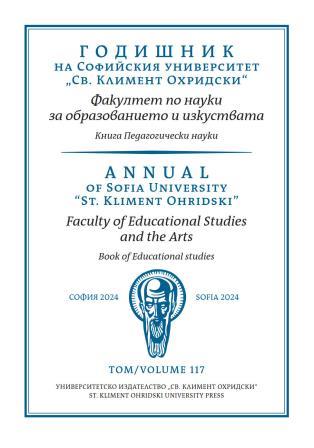Статут на дигиталните компетентности и подходи за изграждането им в обучението в началните класове в България
Status of Digital Competences and Approaches to their Development in Primary School in Bulgaria
Author(s): Lubka Aleksieva, Veronica RachevaSubject(s): Social Sciences, Education, School education
Published by: Софийски университет »Св. Климент Охридски«
Keywords: digital competencies; primary school education; computer modelling; Dig- Comp, DigCompEdu
Summary/Abstract: In the era of digitalisation, the development of digital competencies is fundamental for preparing future active citizens, and these competencies should be developed through targeted pedagogical work from the beginning of school education. In this context, the current study aims to investigate the status of digital competencies in primary school education in Bulgaria by examining the scientific literature and educational documentation in the field. Within the framework of theoretical analysis, the digital competencies of primary school students have been defined, and the approaches used in teaching, learning, and assessing digital competencies in primary education at both international and national levels have been analysed. In the context of the European Framework for Digital Competence of Citizens (DigComp), the place and approaches for the development of digital competencies in the Bulgarian curricula have been studied, both for the specialised subject Computer Modelling” and for all other subjects in primary school where this competence is integrated as transversal. In accordance with the European Framework for the Digital Competence of Educators (DigCompEdu), the necessary competencies of primary school teachers for the development of students’ digital competencies are indicated. The research methods used in the study are theoretical analysis, curriculum mapping (a total of 35), content analysis, and comparative analysis of educational documentation. To further clarify the status of digital competencies, over 90 textbooks and workbooks, as well as their corresponding methodological guides for primary school teachers, have been reviewed. The results of the study demonstrate a lack of consistency and balance between the curricula regarding the development of digital competence. It appears that there is a lack of a shared vision for the digital competencies that students should acquire in primary school, and their formation within a separate subject (Computer Modelling) is not aligned with their development in other subjects. There is a need to conceptualise the integration of digital competencies as transversal in the curricula, in accordance with a suitable reference to the European Framework for Digital Competence for Citizens. There is also a necessity for specific instructions for teachers on integrating digital competencies into the teaching of different subjects.
- Issue Year: 117/2024
- Issue No: 1
- Page Range: 114-177
- Page Count: 63
- Language: Bulgarian

